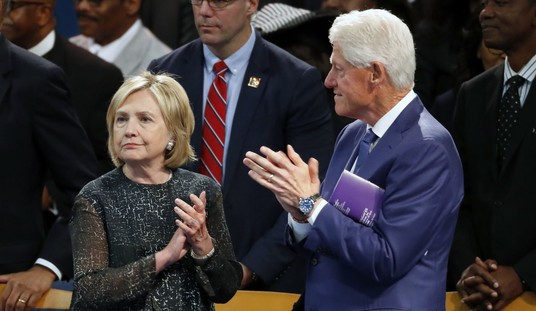
I am not defending Rod Rosenstein. He is duplicitous, cowardly and above all, self-serving. Worst of all, after having written a memo in which he outlined the reasons why former FBI Director James Comey should be fired, he turned around and appointed Robert Mueller to the special counsel after the deed was done. Moreover, I marvel at how rarely his role in the coup against the President is either discussed or written about by those of us on the right. (Please see Rod Rosenstein Has Major Conflicts Of Interest In Trump Collusion Case – Signature On FISA App Only The Latest)
Putting all of that aside for the moment, it was quite ironic to hear Comey’s discussion of Rosenstein with Anderson Cooper on Thursday night.
I think people like that, like Rod Rosenstein, who are people of accomplishment but not real sterling character, strong character, find themselves trapped. And then they start telling themselves a story to justify their being trapped which is, ‘Yeah, he’s awful but the country needs me.’
Comey also told Cooper that Rosenstein was “very bright, but not strong enough.”
The disgraced former FBI Director also disparaged Attorney General William Barr. He said, “He’s an accomplished and very smart person and who had nothing to lose in taking this job. But his reputation — it doesn’t make me happy to say this, but I think he has lost most of his reputation with the way he has conducted himself.” He added that Barr “continues to talk as if he’s the President’s lawyer.”
These remarks come on the heels of Comey’s op-ed in the New York Times last week in which he suggested, referring to Rosenstein and Barr, that proximity to “amoral leaders has a way of revealing the character of those around them. Accomplished people lacking inner strength can’t resist the compromises necessary to survive Mr. Trump and that adds up to something they will never recover from.”
Comey fails to see that he has just described his own fall from grace.
Many readers are familiar with the March 2004 Hospital Showdown story.
Then-Attorney General John Ashcroft, suffering from pancreatitis, was in grave condition at a Washington hospital and had appointed then-Deputy Attorney General James Comey as Acting AG during his absence. Robert Mueller was the FBI Director at the time.
Meanwhile, the Bush administration was seeking reauthorization of it’s warrantless domestic surveillance program, codenamed “Stellar Wind.” The National Security Agency (NSA) program was approved by President Bush in the aftermath of the 9/11 attacks and had recently been “revealed by Thomas Tamm to the New York Times.”
Both Comey and Mueller believed that spying on Americans was illegal and wrong. When they heard that then-White House counsel Alberto Gonzales was on his way to the hospital to obtain John Ashcroft’s authorization for the program, Comey rushed to the hospital as well. Comey threatened to resign and Ashcroft supported him.
When Bush reauthorized the program anyway, despite the Justice Department’s conclusion that it was unlawful, Comey (again) threatened to resign—with Ashcroft, FBI director Robert Mueller, and other top officials reportedly ready to join him. Bush ultimately backed down, and the troublesome component was briefly suspended until it could be renewed under a different legal authority.
In 2004, Comey was willing to walk away from his job for what he believed in. Whether you agree with his position on the program or not, that was rather impressive.
Fast forward to 2016. Suddenly, spying on Americans was okay, if it meant defeating candidate Donald Trump. So was the exoneration of Hillary Clinton even if she had mishandled classified information and destroyed evidence which had been under subpoena, crimes that would cost ordinary Americans several years in prison.
Perhaps the proximity to the Clintons just ate up his soul in small bites.
So, what was it you were saying about lacking the inner strength to resist compromises Mr. Comey?














Join the conversation as a VIP Member